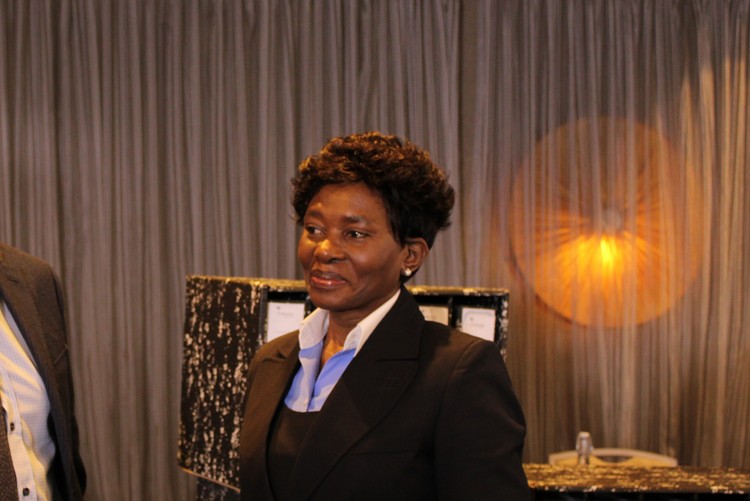
8 May 2023
The Judicial Conduct Tribunal is hearing evidence about Judge Tintswalo Annah Nana Makhubele’s conduct as PRASA interim board chairperson. Photo: Masego Mafata
Following an adjournment in February, the Judicial Conduct Tribunal against Judge Tintswalo Makhubele resumed in Rosebank, Johannesburg today with whistleblower Martha Ngoye on the stand.
Ngoye, who has been suspended as head of legal, risk and compliance at the Passenger Rail Agency South Africa (PRASA), was the second witness to testify at the tribunal into Judge Makhubele’s conduct. The first witness, who provided two days of testimony, was Gauteng High Court Judge President Dunstan Mlambo. (Ngoye has won an arbitration ruling against her dismissal, but PRASA has appealed the ruling.)
#UniteBehind accused Makhubele of breaching the separation of powers principle, and of improper conduct while she was chairperson of PRASA’s interim board. The organisation also alleged Makhubele negotiated and entered into a confidential settlement agreement with representatives of corruption-accused company Siyaya, and sidelined PRASA’s internal legal team.
The Judicial Conduct Committee (JCC) recommended a Judicial Conduct Tribunal in March 2020 following #UniteBehind’s complaint to the Judicial Service Commission (JSC) in January 2019.
Advocate Vincent Maleka, acting for Makhubele, stated during cross-examination of Ngoye that Makhubele was carrying out the duties and responsibilities expected of her as interim board chairperson.
Included in the decisions taken by the interim board at the time was the suspension of the legal panel, a move Ngoye criticised in her testimony at the tribunal’s last sitting.
“The board of Judge Makhubele, when it came into office, was well within its rights and duties to deal with that question,” argued Maleka.
Maleka told the tribunal that the legal panel - a list of law firms used by PRASA - was found to be “improperly constituted” by the Auditor General. He said among the issues raised was irregular expenditure by PRASA when enlisting the services of firms included on the panel.
Ngoye conceded there were issues with the legal panel, hence her department’s efforts to rectify them by attempting to convene to appoint a legal panel that met the required criteria. She said when the board suspended the legal panel “with immediate effect” during Makhubele’s tenure, there was no clear direction in the form of a “signed resolution” that instructed her department on legal service procurement.
Ngoye said instead, her department received an unsigned excerpt from a document detailing a discussion during a board meeting that stated legal services were to be procured through the supply chain management process and in consultation with the chairperson of the board. This decision, according to Ngoye, resulted in the sidelining of the legal department as well as a confidential settlement agreement with representatives of Siyaya.
She told the tribunal that despite hearing from PRASA’S business unit that no money was owed to Siyaya, and that the rail agency had a strong case against them in court, there were plans of a “secret settlement” with Siyaya, which included a payment of about R56-million.
Maleka challenged Ngoye’s claim that the settlement was a secret, saying it had been discussed with then PRASA group CEO Lindekhaya Zide, and Diale Mogashoa attorneys, who were appointed to act on behalf of PRASA. That Ngoye was not informed about the settlement did not mean it was a “secret”, he argued.
Asked by Maleka whether she believed Makhubele “aided and abetted corruption at PRASA”, Ngoye responded: “The Siyaya transaction and the settlement thereof is tantamount to a corrupt transaction … I am saying yes.”
Meanwhile, legal officer and director at #UniteBehind, Joseph Mayson, said the organisation was confident that evidence would reveal Makhubele’s conduct as interim board chairperson was “unbecoming of a judge”.
The Tribunal continues on Tuesday.